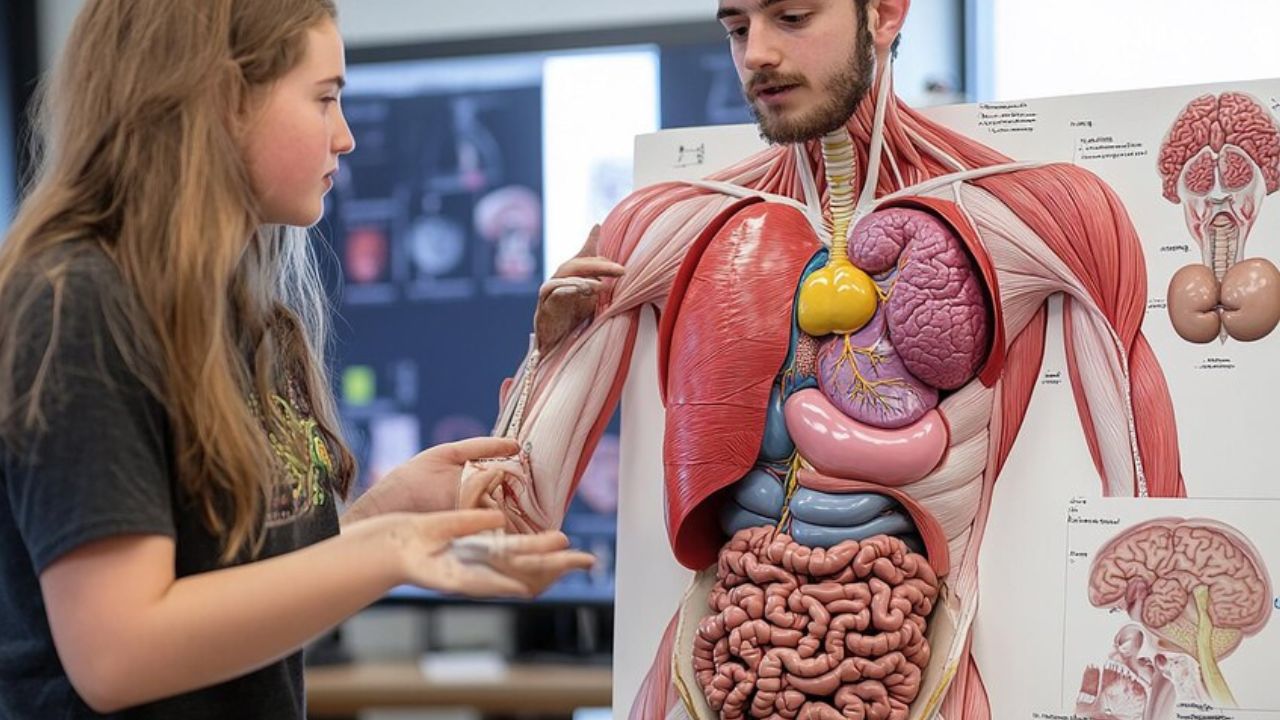Health
Understanding Mental Health: A Comprehensive Guide

We’ve all heard of the term “mental health,” but do we really know what it means?Understanding mental health influences our thoughts, emotions, and behaviors. It plays a critical role in our general well-being, impacting our ability to manage stress, interact with others, and make decisions. This piece explores the fundamentals of mental health, highlighting its significance and providing advice on how to maintain it.
The Basics of Mental Health
What is Mental Health?
Our emotional, psychological, and social well-being are all considered aspects of our mental health. It has an impact on our feelings, ideas, and actions and is important throughout all phases of life, from infancy to adulthood.
Common Mental Health Disorders
Depression, anxiety disorders, bipolar disorder, schizophrenia, and eating disorders are a few prevalent mental health conditions. Every one of these illnesses affects people differently, resulting in varied symptoms and need for care.
Factors Affecting Mental Health
Biological Factors
The three main determinants of mental health are brain chemistry, genetics, and physical health. Genetic predispositions or hormonal imbalances are two factors that can increase a person’s risk of developing mental health disorders.
Psychological Factors
Our activities, emotions, and thoughts all have a significant impact on our mental health. Stress, trauma, and unfavorable thought habits can all lead to mental health problems.
Environmental Factors
Social position, relationships, and upbringing are examples of environmental factors that have an impact on mental health. Neglect, abuse, and poverty are examples of adverse circumstances that can have a lasting impact.
The Stigma Surrounding Mental Health
Historical Context of Mental Health Stigma
In the past, mental health problems were misinterpreted and frequently connected to moral flaws or weakness. Widespread discrimination and stigma resulted from this.
Effects of Stigma on Individuals
Stigma can keep people from getting treatment, which can exacerbate symptoms and lower their quality of life. It also encourages loneliness and embarrassment.
Combating Mental Health Stigma
Reducing stigma requires education, candid discussions, and supportive surroundings. Another way to help lower barriers is to share personal stories and foster understanding.
Recognizing the Signs of Mental Health Issues
Common Symptoms of Mental Health Disorders
Symptoms vary but might include persistent depression, dramatic mood fluctuations, withdrawal from activities, changes in eating or sleeping patterns, and difficulties concentrating.
Early Warning Signs
If you or someone you love goes through substantial changes in behavior, mood, or functionality that interfere with day-to-day living, it’s critical to get help. Expert assistance can have a significant impact.
Mental Health in Different Age Groups
Mental Health in Children
Anxiety, depression, and behavioral disorders are all possible in children. Their long-term growth and well-being depend on early intervention.
Mental Health in Teenagers
Peer pressure, academic stress, and identity issues are among the particular difficulties that teenagers encounter. In order to support their mental health, there needs to be open communication and, where necessary, expert guidance.
Mental Health in Adults
Understanding Mental health: adults may experience relationship problems, stress, and difficulty balancing work and life. It’s critical to address these issues through counseling, self-care, and support systems.
Mental Health in the Elderly
Elderly people may suffer from bereavement, loneliness, and age-related cognitive impairment. For them to have a high quality of life, it is imperative that they have access to mental health services and social support.
The Impact of Mental Health on Physical Health
Connection Between Mental and Physical Health
Understanding Mental health and well-being are intimately related. Chronic physical ailments can exacerbate mental health issues, and poor mental health can contribute to physical problems such as heart disease.
How Mental Health Issues Can Affect Physical Well-Being
Anxiety, despair, and stress can raise inflammation, impair immunity, and encourage unhealthy coping strategies like substance misuse.
importance of Holistic Health
A comprehensive approach to health takes into account both mental and physical factors. Healthy food, frequent exercise, and mindfulness are among practices that can promote general well-being.
Mental Health and Relationships
How Mental Health Affects Relationships
Problems with mental health can cause emotional distance, disagreements, and miscommunication in relationships. Effective communication is essential for overcoming these obstacles.
Supporting a Loved One with Mental Health Issues
To make loved ones feel supported, show them empathy, tolerance, and encouragement. Being a proactive listener and supporting expert assistance are also crucial.
Communication Strategies
Active listening, voicing concerns without passing judgment, and validating emotions are all components of effective communication. These techniques help improve mental health and build stronger bonds between people.
Mental Health in the Workplace
Prevalence of Mental Health Issues at Work
The pressures of the office cause stress, burnout, and other mental health problems in a lot of individuals. Taking care of these problems is essential for worker wellbeing and productivity.
Creating a Supportive Work Environment
By encouraging work-life balance, providing mental health tools, and cultivating an open and friendly culture, employers can build supportive settings.
Resources and Support for Employees
Employees can better manage their mental health by having access to counseling services, mental health days, and stress management training.
Coping Strategies and Treatment Options
Self-Care Practices
Regular exercise, a balanced diet, enough sleep, and mindfulness exercises like meditation are examples of self-care practices. These routines can enhance mental wellness on the whole.
Professional Treatment Options
Counseling, medicine, and therapy are examples of professional therapies. Other treatment modalities, such as cognitive-behavioral therapy (CBT), can be quite successful.
Alternative Therapies
Complementing traditional treatments, alternative therapies like yoga, acupuncture, and art therapy can offer extra assistance.
The Role of Technology in Mental Health
Benefits of Mental Health Apps
Apps for mental health management can offer tools for tracking progress as well as information and assistance. For many users, they provide accessibility and convenience.
Teletherapy and Online Counseling
Understanding Mental Health treatments has become more accessible thanks to teletherapy and online counseling, particularly during the COVID-19 pandemic. For individuals who are unable to attend in-person courses, they provide flexibility and reach.
Potential Drawbacks of Technology
While there are many advantages to technology, it’s crucial to be mindful of potential disadvantages as well, such as issues with data privacy, an excessive reliance on apps, and the requirement for expert advice.
Building Resilience and Preventing Mental Health Issues
Strategies for Building Mental Resilience
Developing coping mechanisms, keeping an optimistic attitude, and asking for help when required are all part of becoming resilient. Stress reduction and mindfulness techniques can be beneficial.
Preventative Measures
Regular mental health examinations, upholding a healthy lifestyle, and proactively managing stressors are examples of preventative strategies.
importance of a Strong Support System
A robust network of support offers psychological, practical, and a sense of community. It’s essential to establish and preserve ties with friends, family, and the community.
Mental Health During Crisis Situations
Impact of Global Crises on Mental Health
Anxiety, depression, and stress are among the major effects of global catastrophes like the COVID-19 epidemic on mental health.
Coping Strategies During a Crisis
Keeping up routines, communicating with loved ones, and, if necessary, obtaining professional assistance are all examples of coping mechanisms during times of crisis.
Seeking Help in Times of Crisis
It’s critical to seek out assistance from community services, crisis hotlines, and mental health specialists during times of need.
Future Trends in Mental Health Care
Emerging Research and Innovations
Current research is improving our understanding of mental health and paving the way for novel therapies. The field of mental health treatment is changing as a result of innovations like AI and customized medicine.
The Future of Mental Health Treatment
It’s probable that future treatment modalities will combine technology and conventional procedures with more individualized and holistic approaches.
Integrating Mental Health Care into Everyday Life
It can become more commonplace and approachable by incorporating mental health services into everyday activities. This involves lowering stigma and advancing mental health education.
Conclusion
Our mental health has a profound impact on all facets of our life and is essential to our general well-being. Through comprehending mental health, identifying warning indicators, and obtaining the right assistance, we can live happier, healthier lives. Let’s keep putting mental health first, fight stigma, and provide support to one another along the way.
FAQs
What is the difference between mental health and mental illness?
While mental disease includes particular illnesses like depression or anxiety that influence mental health, mental health refers to our total emotional, psychological, and social well-being.
How can I support someone struggling with mental health issues?
You may help them by listening well, demonstrating empathy, pushing them to get help from a professional, and showing them patience and compassion.
What are some common signs that I might need to seek help for my mental health?
Prolonged melancholy, abrupt mood swings, disengagement from activities, irregular eating or sleeping schedules, and trouble focusing are typical symptoms.
Are there any effective self-care practices for maintaining mental health?
Yes, engaging in regular exercise, eating a balanced diet, getting enough sleep, practicing mindfulness through meditation, and preserving social relationships are all beneficial self-care habits.
How has the COVID-19 pandemic affected mental health globally?
Because of things like isolation, uncertainty about the economy, and health worries, the COVID-19 pandemic has made people more stressed, anxious, and depressed globally. It is now more important than ever to have access to services and help for mental health.
Health
Benefits of Laurel Leaf Tea: The Ultimate guide

Laurel leaf tea is often overlooked as a natural remedy, yet it offers numerous potent health benefits. Brewed from bay laurel leaves, this fragrant tea provides powerful healing properties. Laurel leaf tea, long prized for its medicinal qualities in Mediterranean countries, is currently becoming more and more well-known worldwide. Let us explore the amazing advantages that this straightforward brew provides.
Rich in Antioxidants
Antioxidants, which are abundant in laurel leaf tea, are essential for shielding your cells from harm brought on by free radicals. Free radicals, unstable chemicals, contribute to cancer, heart disease, and other chronic illnesses. Regular consumption of Laurel Leaf Tea Benefits to helps counteract these toxic chemicals and supports optimal health for your body.
Supports Digestive Health
Experiencing bloating or experiencing dyspepsia? Laurel leaf tea could be the perfect calming solution for you. Laurel leaves include chemicals that aid with digestion, like cineol and eugenol. These substances facilitate easier digestion, lessen flatulence, and help break down food. After a large meal, this tea is often used by people to soothe their tummies and aid with digestion.
Boosts Immune System
This tea is a great way to support your immune system because of the laurel leaves’ antiviral and antibacterial qualities. Regular consumption may lower your risk of contracting common illnesses like the flu or colds. In addition to being rich in immune-boosting vitamins and minerals, laurel leaves also assist your body fight off infections more successfully.
Anti-inflammatory Properties
Laurel leaf tea can provide some help if you have illnesses like arthritis or persistent inflammation. The anti-inflammatory properties of the essential oils and antioxidants found in the leaves aid to lessen discomfort and swelling. Many individuals use laurel leaf tea as a natural way to treat the symptoms of inflammatory disorders.
Helps Regulate Blood Sugar Levels
Laurel leaf tea can help people with diabetes or prediabetes by adding it to their daily routine. According to studies, several of the chemicals found in laurel leaves may help control blood sugar levels. This suggests that consuming tea made from Laurel leaves may help avoid blood sugar rises, making it a possible natural diabetes treatment.
Improves Heart Health
Improved cardiovascular health has been associated with laurel leaf tea. The tea’s antioxidants and other health-promoting ingredients may lower bad cholesterol, enhance blood flow, and stave off heart disease. This tea has been shown to support heart health, which may lead to a longer, healthier life.
Conclusion
A little-known treasure in the field of herbal treatments is laurel leaf tea. This tea enhances digestion and lowers inflammation, among its many health advantages. It is an easy, all-natural approach to improve your health, and you will love adding its fragrant aroma to your daily routine.
FAQs
Can I drink laurel leaf tea every day?
Yes, drinking laurel leaf tea on a daily basis is generally harmless, but moderation is essential.
Does laurel leaf tea help with weight loss?
Although it might help with digestion, there is not enough data to say that it will significantly help with weight loss.
How do I make laurel leaf tea?
Just steep two to three dried laurel leaves in a ten-minute steep of hot water.
Are there any side effects?
For most individuals, laurel leaf tea is safe, but if you drink too much, you can have headaches or nausea.
Can pregnant women drink laurel leaf tea?
Pregnant women should ideally speak with a healthcare provider before ingesting laurel leaf tea.
Health
The Soothing Science of Aromatherapy: Harnessing Nature’s Fragrant Remedies

The Soothing Science of Aromatherapy is a time-honored method that improves mental, emotional, and physical health. Aromatherapy uses the natural scents of plants to influence our bodies and brains.Examples of this include the relaxing scent of lavender before bed and the energetic aroma of peppermint in the morning. Consequently, many people turn to this holistic therapy for relief from contemporary stress. But what exactly is the mechanism of action behind this approach, and why does it attract so many seeking stress relief?
What is Aromatherapy?
The Soothing Science of Aromatherapy highly concentrated plant extracts called essential oils to provide therapeutic effects. They can diffuse these oils into the air, apply them physically, or inhale them to create a specific atmosphere or mood.Every plant part, including the flowers, leaves, bark, and roots, can provide essential oils, each with a unique set of benefits. Essential oils can have significant impacts on the mind and body, ranging from increasing energy to lowering anxiety.
How Does Aromatherapy Work?
The skin’s ability to absorb essential oils contributes to aromatherapy’s effectiveness. Applying diluted versions of oils like eucalyptus or tea tree can help with bodily problems like respiratory disorders or tense muscles. The skin absorbs their ingredients and carries them into the bloodstream, providing benefits beyond a pleasing aroma.
Key Benefits of Aromatherapy
Numerous advantages of aromatherapy exist for both physical and mental well-being:
Reduces Stress and Anxiety
Essential oils like rose, chamomile, and lavender are well known for their relaxing properties. Diffusing these oils around your house or place of business can help you relax naturally by lowering tension and anxiety.
Boosts Energy Levels
Improves Sleep Quality
Essential oils like lavender, sandalwood, and frankincense can help create a calm environment that encourages deep, restful sleep if insomnia is your daily battle. Before going to bed, a few drops in a diffuser can have a significant impact.
Relieves Physical Pain
Anti-inflammatory qualities found in essential oils like eucalyptus and peppermint help relieve headaches, tight muscles, and even arthritis pain. These oils are frequently used by massage therapists to augment the therapeutic benefits of a massage.
How to Incorporate Aromatherapy Into Your Life
Aromatherapy can be incorporated into your everyday routine in a number of ways:
Diffusion: A diffuser for essential oils can be used to fill a room with aromas. This is the ideal way to infuse energy or create a peaceful environment while at work.
Inhalation: You can instantly improve your mood or reduce tension by just taking a deep breath from the bottle or dabbing some oil onto a piece of paper.
Topical Application: People can apply essential oils topically to the skin after diluting them in a carrier oil, such as coconut or jojoba, to ease physical discomfort or promote skincare.
Conclusion
Using aromatherapy is an easy and natural approach to enhance your general health by using the healing properties of plants. Whether you are looking for more energy, better sleep, or stress reduction, essential oils can provide a customized answer. Aromatherapy has many uses and calming effects, making it a must-try for anybody looking for natural health improvements.
FAQs
What is aromatherapy?
In aromatherapy, a holistic therapeutic modality, people use essential oils derived from plants through topical application or inhalation to enhance mental, emotional, and physical well-being.
How does aromatherapy help with stress?
Essential oils that influence the limbic system of the brain, which controls emotions, such as lavender and chamomile, offer relaxing qualities that help lower tension and anxiety.
Can aromatherapy improve sleep?
Yes, people commonly use oils like lavender and sandalwood to encourage relaxation, making it easier to fall asleep and achieve deeper sleep.
Is aromatherapy safe for everyone?
Although aromatherapy is generally harmless, those who have sensitive skin, allergies, or asthma should exercise caution. Before using essential oils topically, always dilute them and conduct a patch test.
How can I use essential oils at home?
Health
The Importance of a Gut Health Check: Why You Shouldn’t Ignore Your Gut

The Importance of a Gut Health Check influences your general health, but how often do you consider it? To ensure your digestive system functions properly, get a gut health check. Your gut plays a crucial role in more than just digesting food; it also affects your immune system and mental health. So, how can you listen to your intuition, and why is it important?
What is Gut Health?
Gut health refers to the equilibrium and functionality of the microbes residing in your digestive system. The bacteria commonly referred to as gut flora or gut microbiome are essential for proper digestion, absorption of nutrients, and immune system function. A healthy gut may prevent infections, control stress, and elevate your mood. However, when things go wrong, they can cause a variety of problems, including chronic diseases, inflammation, and bloating.
Signs Your Gut Health Might Be Off
Digestive Issues: Constipation, diarrhea, bloating, or gas may be signs of an unbalanced gut.
Frequent Illness: A weak stomach may be the cause of recurring colds or other diseases.
Mood Swings and Anxiety: A person’s mental health can be impacted by their gut health, as there is a strong correlation between the two.
Food Intolerances: An unhealthy gut may be the cause of discomfort while eating particular foods.
Skin Problems: Unbalances in the stomach can be linked to conditions like eczema and acne.
How to Perform a Gut Health Check
Evaluate Your Diet: Your gut may suffer from a diet heavy in processed foods, sweets, and poor in fiber. Following a meal, if you experience bloating or pain, your gut may not be working properly.
Track Your Digestive Patterns: Consider how frequently you have diarrhea, constipation, or irregular bowel movements. These may serve as important markers for gut health.
Monitor Your Energy Levels: Are you constantly tired? You may feel exhausted if you are unable to absorb vital nutrients due to poor gut health.
Use At-Home Testing Kits: A number of gut microbiome testing kits are now on the market that can tell you how healthy your gut is. These tools detect the bacteria in your stomach by analyzing your poo and offer helpful advice.
Ways to Improve Your Gut Health
Increase Fiber Intake: Whole grains, fruits, and vegetables are high in fiber and nourish the good bacteria in your stomach.
Eat Fermented Foods: Probiotics included in foods like yogurt, kimchi, and sauerkraut aid in the restoration of gut flora.
Stay Hydrated: Water consumption is crucial for digestive processes and gut lining health.
Manage Stress: Gut health can be adversely affected by ongoing stress. Deep breathing, meditation, and consistent exercise are among the techniques that help improve digestive and mental health.
Conclusion
Maintaining your general wellbeing as well as the health of your digestive system requires The Importance of a Gut Health Check Effective strategies to maintain gut health include changing your diet, listening to your body’s signals, and perhaps seeking medical advice. Recall that you are only as healthy as your stomach is.
FAQs
What are the signs of poor gut health?
Bloating, gas, diarrhea, constipation, recurrent infections, and even mood changes are common symptoms.
How can I improve my gut health?
Eating more fermented and fiber-rich foods, drinking enough of water, and controlling your stress levels can all help to enhance gut health.
What foods are bad for gut health?
Foods high in sugar, processed foods, and poor in fiber can all have a detrimental effect on gut health.
Can poor gut health affect my mental well-being?
Indeed, there is evidence linking gut health to mood disorders such as depression, anxiety, and others.
Is a gut health check necessary?
Yes, routinely monitoring your gut health can aid in preventing digestive problems and promoting general wellbeing.
-

 Celebrity10 months ago
Celebrity10 months agoJulia Rejean Moorhead: A Trailblazer in Her Field
-

 INFORMATION10 months ago
INFORMATION10 months agoUnderstanding Information: Its Role and Impact in Our Lives
-

 News10 months ago
News10 months agoThe Ever-Evolving World of News:Global Events Unfolding Today
-

 Sports10 months ago
Sports10 months agoGonzaga Basketball: The Rise of a College Hoops Powerhouse
-

 Sports10 months ago
Sports10 months agoThe Incredible Benefits of Sports: Boost Your Life on All Fronts
-

 Business10 months ago
Business10 months agoRogue Trader Rotate Grand Strategist:The Dynamic World of Trading
-

 Health10 months ago
Health10 months agoThe Ultimate Guide to Health: Tips and Strategies for a Healthier
-

 Technology8 months ago
Technology8 months agoFascinating Facts About Astronauts:The Ultimate Guide
